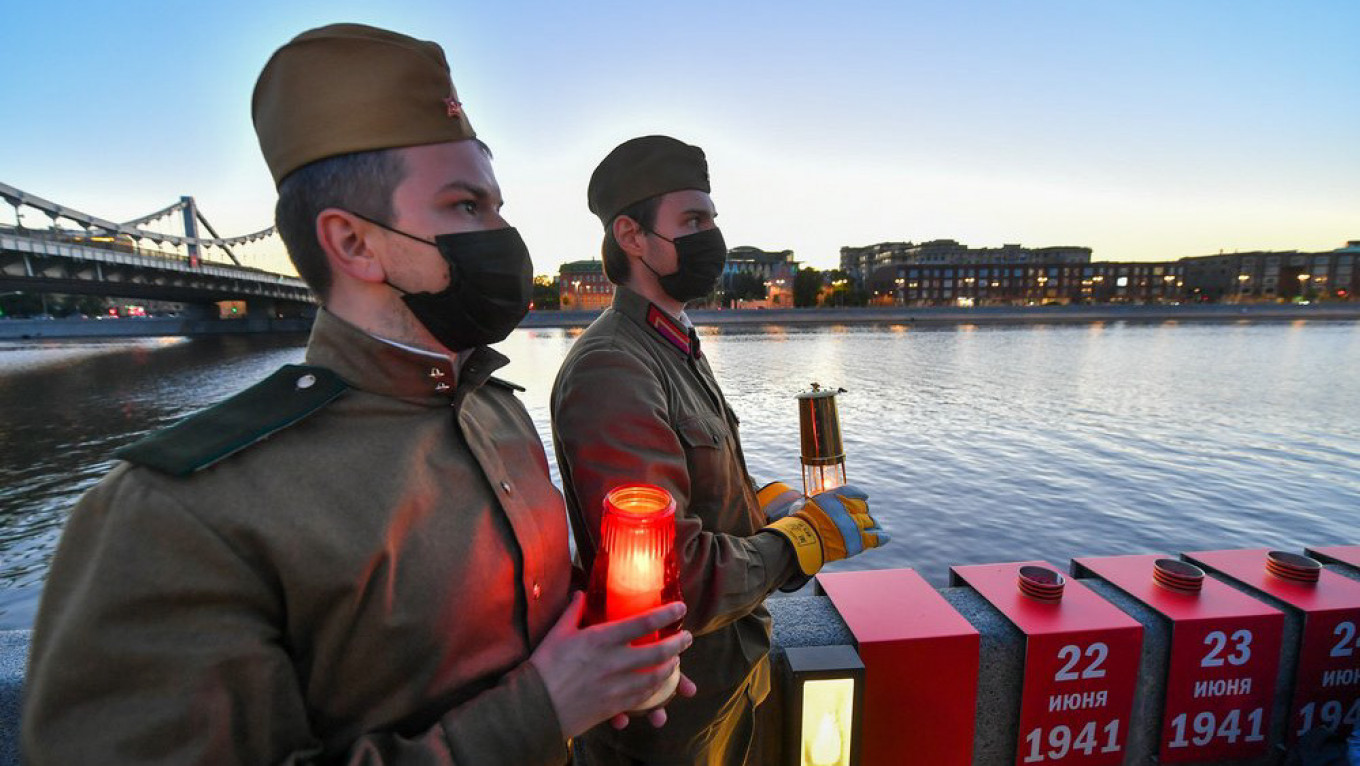
President Vladimir Putin has ordered Russia’s lower-house speaker to draft a legal ban on comparisons between the Soviet Union and Nazi Germany, according to a Kremlin statement published Saturday.
Putin instructed State Duma speaker Vyacheslav Volodin to draft by July 1 amendments to Russia’s law cementing Soviet victory over Nazi Germany that would “prohibit publicly equating the role of the U.S.S.R. and Nazi Germany in World War II.”
His directive follows the European Parliament’s 2019 condemnation of a Soviet-Nazi non-aggression treaty and a year of mutual recriminations with Poland over which country was responsible for starting World War II.
Russia disagrees with its former satellite states over the role that Soviet dictator Josef Stalin played in World War II for signing the Molotov-Ribbentrop Pact with Nazi Germany. A secret protocol to the 1939 non-aggression pact paved the way for the German invasion of Poland by carving up its and other European states’ territories into “spheres of influence.”
After annexing Crimea from Ukraine in 2014, Putin defended the Molotov-Ribbentrop Pact as Moscow’s response to being isolated by the West. He had denounced it as “unacceptable” five years earlier.
In recent years, Russia’s leadership has shown renewed interest in the memory of World War II and reviving its praise for Russia’s Soviet past.
Russian investigators have launched new archive probes into World War II-era atrocities committed by Nazi forces across Russia in recent years, with veterans summoned to recount their experiences in recent months.
Last summer, Putin oversaw Russia’s postponed Victory Day parade marking the 75th anniversary of the Soviet victory in World War Ii alongside a nationwide vote on constitutional changes that paved the way to extend his 20-year rule. The massive military parade took place despite the raging coronavirus pandemic.
Communist Party lawmakers have sought to impose 10-year prison sentences for “changing the post-war order” by comparing the Soviet regime to Nazi Germany.
Russia banned the display of Nazi symbols to promote fascism in 2014 despite criticism that World War II documentaries, feature films, textbooks and battle re-enactments could fall prey to the law.
